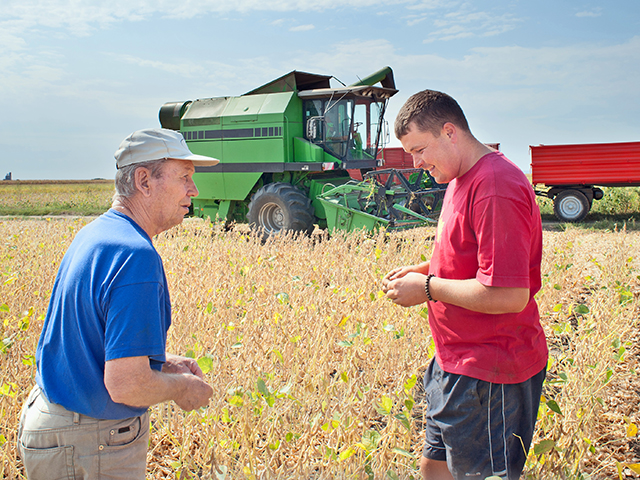Family Business Matters
Components of a Good Transition
Successfully implementing a succession plan is difficult in any family business. But, when much of the senior generation's equity is usually held in land farmed or grazed by the younger generation, it gets harder. The financial ties between generations are embedded in the operating business. The historical connection to the farm or ranch house sometimes makes it hard for the senior generation to want to live elsewhere. Indeed, the senior generation's identity -- its role -- is often bound up in the work of farming or ranching. Stepping away from such financial, emotional and vocational security is, in a word, tough.
To navigate the complexities of a handoff, I find it helpful to break it into several components. Consider the following three areas and the suggestions in each as you look toward a transition on your farm or ranch.
1. Next-Generation Competence and Capacity
Two basic questions arise when considering a transition to younger family members. First, do they have the skills and knowledge they need to drive the business? Because of the age and experience differences between old and young, the younger family members will never know as much as the senior members. But, do they know the key areas? And, do they show the ability to learn and adapt? If they need skills and knowledge, encourage their participation in conferences, workshops and peer groups. If they need a chance to practice their abilities so that they learn and grow, put them in the lead on increasingly important decisions.
P[L1] D[0x0] M[300x250] OOP[F] ADUNIT[] T[]
Second, does the next generation have the bandwidth to assume the senior members' duties? They might need to hire another key team member or outsource some administrative functions. Or, maybe they can reshuffle roles to fill gaps as the senior generation steps away. It takes time to develop new capabilities. It may require creating some slack in the organization as the parties approach the transition so the labor is available and ready. Create the capacity before you need it.
2. Financial Independence
The senior generation's (often significant) equity in land, which is farmed or ranched by the younger generation, can sometimes lead to difficult transitions. Since rental payments are a source of retirement funding, the senior generation is naturally concerned about the security of those disbursements. That creates a tendency to "look over the shoulder" of the members of the younger generation, causing them to feel second-guessed or even smothered as they attempt to bring their own leadership and vision to the enterprise. To lessen the conflict, consider retirement plans (IRA, 401(k) or defined benefit plans), investments in other types of real estate or even investments in other businesses to diversify the future stream of retirement income.
3. Senior Generation Off-Farm Enthusiasm
If a senior-generation member's only focus is the farm and the activity of farming, it will likely be hard to let go. While letting go doesn't mean they need to be totally absent, it does mean there needs to be some attention directed elsewhere, some enthusiasm for off-farm activities. Spending winters away, visiting children and grandchildren in the city, serving on boards or getting involved in a church or charity -- especially one that can benefit from their farming knowledge -- can foster a positive farm or ranch transition.
Transitions in family businesses and life are inevitable. The real question is how we approach the impending change. What will it take to be able to "let go"? If the next generation has the skills and space, and if the senior generation has both financial autonomy and enthusiasm for other activities, the odds of a successful transition are much better.
> Write Lance Woodbury at Family Business Matters, 2204 Lakeshore Dr., Suite 415, Birmingham, AL 35209, or email lance.woodbury@kcoe.com.
[PF_0221]
(c) Copyright 2021 DTN, LLC. All rights reserved.



